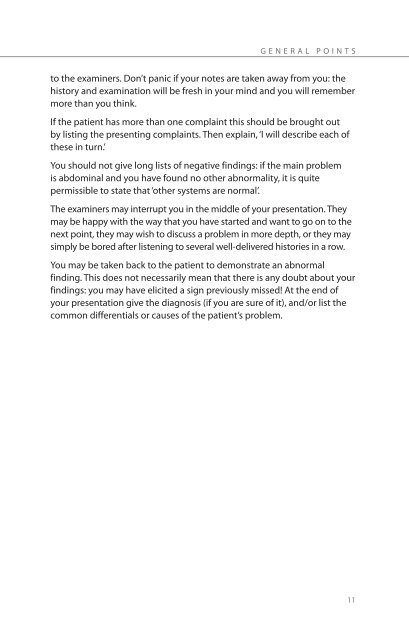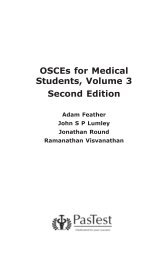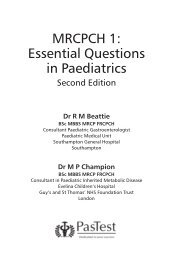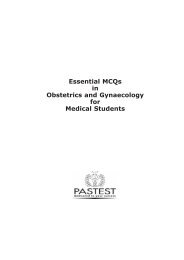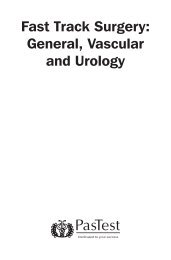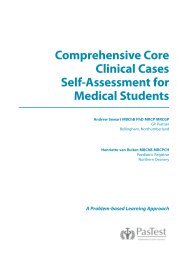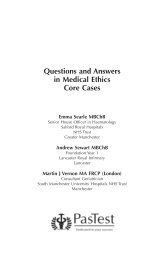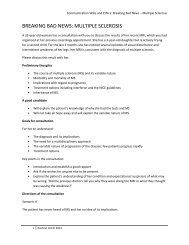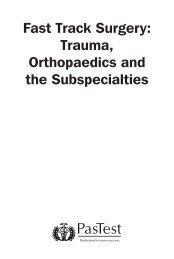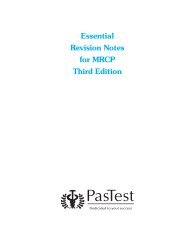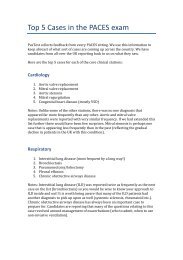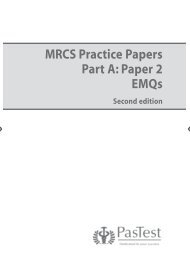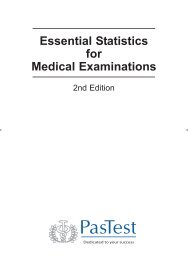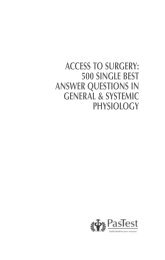SURGICAL FINALS Passing the Clinical - PasTest
SURGICAL FINALS Passing the Clinical - PasTest
SURGICAL FINALS Passing the Clinical - PasTest
- No tags were found...
You also want an ePaper? Increase the reach of your titles
YUMPU automatically turns print PDFs into web optimized ePapers that Google loves.
G E N E R A L P O I N T Sto <strong>the</strong> examiners. Don’t panic if your notes are taken away from you: <strong>the</strong>history and examination will be fresh in your mind and you will remembermore than you think.If <strong>the</strong> patient has more than one complaint this should be brought outby listing <strong>the</strong> presenting complaints. Then explain, ‘I will describe each of<strong>the</strong>se in turn.’You should not give long lists of negative findings: if <strong>the</strong> main problemis abdominal and you have found no o<strong>the</strong>r abnormality, it is quitepermissible to state that ‘o<strong>the</strong>r systems are normal’.The examiners may interrupt you in <strong>the</strong> middle of your presentation. Theymay be happy with <strong>the</strong> way that you have started and want to go on to <strong>the</strong>next point, <strong>the</strong>y may wish to discuss a problem in more depth, or <strong>the</strong>y maysimply be bored after listening to several well-delivered histories in a row.You may be taken back to <strong>the</strong> patient to demonstrate an abnormalfinding. This does not necessarily mean that <strong>the</strong>re is any doubt about yourfindings: you may have elicited a sign previously missed! At <strong>the</strong> end ofyour presentation give <strong>the</strong> diagnosis (if you are sure of it), and/or list <strong>the</strong>common differentials or causes of <strong>the</strong> patient’s problem.11


